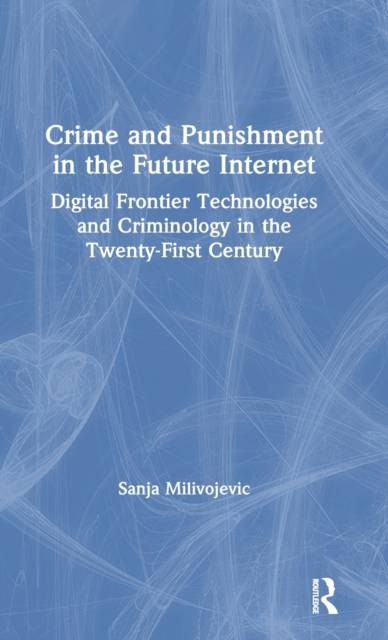
- Afhalen na 1 uur in een winkel met voorraad
- Gratis thuislevering in België vanaf € 30
- Ruim aanbod met 7 miljoen producten
- Afhalen na 1 uur in een winkel met voorraad
- Gratis thuislevering in België vanaf € 30
- Ruim aanbod met 7 miljoen producten
Crime and Punishment in the Future Internet
Digital Frontier Technologies and Criminology in the Twenty-First Century
Sanja MilivojevicOmschrijving
Crime and Punishment in the Future Internet is an examination of the development and impact of digital frontier technologies (DFTs) such as Artificial Intelligence, the Internet of things, autonomous mobile robots, and blockchain on offending, crime control, the criminal justice system, and the discipline of criminology. It poses criminological, legal, ethical, and policy questions linked to such development and anticipates the impact of DFTs on crime and offending. It forestalls their wide-ranging consequences, including the proliferation of new types of vulnerability, policing and other mechanisms of social control, and the threat of pervasive and intrusive surveillance.
Two key concerns lie at the heart of this volume. First, the book investigates the origins and development of emerging DFTs and their interactions with criminal behaviour, crime prevention, victimisation, and crime control. It also investigates the future advances and likely impact of such processes on a range of social actors: citizens, non-citizens, offenders, victims of crime, judiciary and law enforcement, media, NGOs. This book does not adopt technological determinism that suggests technology alone drives social development. Yet, while it is impossible to know where the emerging technologies are taking us, there is no doubt that DFTs will shape the way we engage with and experience criminal behaviour in the twenty-first century. As such, this book starts the conversation about a range of essential topics that this expansion brings to social sciences, and begins to decipher challenges we will be facing in the future.
An accessible and compelling read, this book will appeal to those engaged with criminology, sociology, politics, policymaking, and all those interested in the impact of DFTs on the criminal justice system.
Specificaties
Betrokkenen
- Auteur(s):
- Uitgeverij:
Inhoud
- Aantal bladzijden:
- 148
- Taal:
- Engels
Eigenschappen
- Productcode (EAN):
- 9780367467999
- Verschijningsdatum:
- 22/04/2021
- Uitvoering:
- Hardcover
- Formaat:
- Genaaid
- Afmetingen:
- 140 mm x 216 mm
- Gewicht:
- 317 g

Alleen bij Standaard Boekhandel
Beoordelingen
We publiceren alleen reviews die voldoen aan de voorwaarden voor reviews. Bekijk onze voorwaarden voor reviews.











